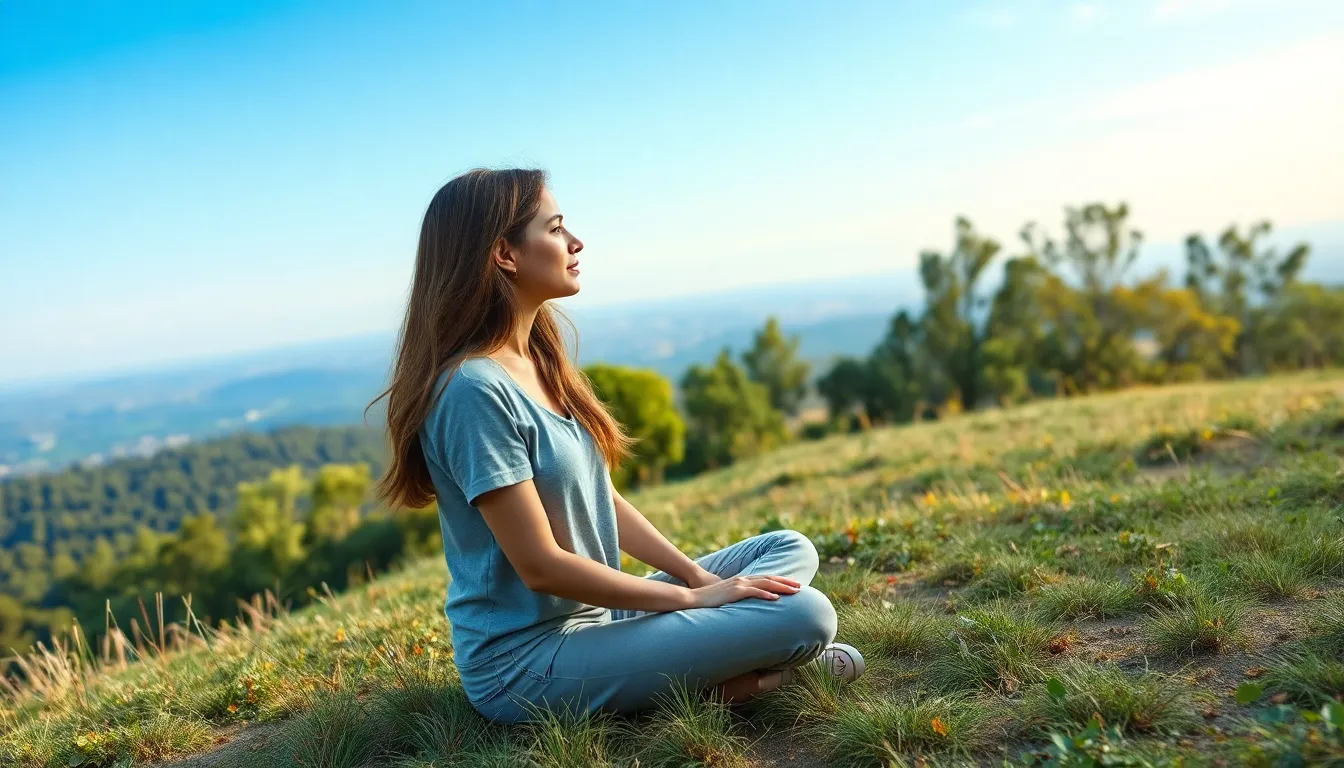In a fast-paced world filled with constant distractions and overwhelming choices, simple living offers a refreshing escape. It encourages individuals to strip away the unnecessary and focus on what truly matters. By embracing minimalism and intentionality, many find a greater sense of peace and fulfillment.
Simple living isn’t just about decluttering physical spaces; it’s a lifestyle that promotes mindfulness and sustainability. From reducing material possessions to prioritizing meaningful relationships, this approach fosters a deeper connection to oneself and the environment. As more people seek balance in their lives, the principles of simple living resonate strongly, providing a roadmap to a more purposeful existence.
Table of Contents
ToggleUnderstanding Simple Living
Simple living emphasizes clarity and intention in daily life. It advocates for reducing clutter and distractions to achieve greater peace and fulfillment.
Definition and Philosophy
Simple living encompasses a lifestyle focused on minimalism and intentionality. It encourages individuals to evaluate their possessions, reduce excess, and embrace meaningful experiences. This philosophy supports mindfulness, advocating for present moment awareness and sustainable choices. Practitioners prioritize relationships and personal growth over material accumulation, creating a life centered on what truly matters.
Historical Context
Simple living traces its roots to various philosophical and cultural movements. In the early 20th century, figures like Thoreau championed simplicity through works like “Walden,” highlighting the importance of nature and self-reliance. The minimalist movement gained traction in the late 20th century, promoting a lifestyle free from consumerism. Contemporary interpretations draw from diverse influences, integrating practices from Buddhism, the arts and crafts movement, and environmentalism, fostering a rich tapestry of values around simplicity and sustainable living.
Benefits of Simple Living

Simple living offers numerous advantages that enhance mental well-being and contribute positively to the environment. By embracing simplicity, individuals can foster a more balanced and purposeful life.
Mental Health Advantages
Mental health improves significantly through simple living practices. Stress reduction occurs as individuals declutter their spaces and minds. Increased focus on meaningful activities rather than material possessions fosters deeper connections and enriched experiences. Mindfulness, a core principle of simple living, encourages individuals to live in the moment, leading to reduced anxiety and heightened satisfaction. Studies show that individuals who adopt minimalism report greater happiness and lower levels of depression.
Environmental Impact
Simple living promotes environmental sustainability by reducing consumption and waste. Individuals choosing minimalism often adopt eco-friendly practices, such as repurposing items and supporting local businesses. Reducing material possessions directly correlates with decreased demand for mass production, resulting in lower carbon footprints and resource conservation. Simple living fosters a deeper appreciation of nature, encouraging individuals to engage in practices that protect it, such as sustainable gardening and minimal-energy usage.
Practical Steps to Embrace Simple Living
Embracing simple living involves actionable steps that can transform daily life, leading to greater clarity and purpose. Two key practices include decluttering personal spaces and adopting mindful consumption habits.
Decluttering Your Space
Decluttering enhances physical and mental environments. Start by evaluating possessions, identifying items that no longer serve a purpose. Create categories for keeping, donating, and discarding to streamline the process. Implement the “one in, one out” rule, ensuring that for every new item acquired, an old item departs. Schedule regular decluttering sessions, maintaining a clutter-free environment. Embrace multifunctional furniture and limit decorative items to reduce visual distractions.
Mindful Consumption
Mindful consumption emphasizes intentional purchasing and usage. Prioritize quality over quantity, investing in durable items that add value. Research products before buying, opting for sustainable brands that align with simple living principles. Limit impulse purchases by creating a waiting period for non-essential items. Practice gratitude for current possessions, which fosters appreciation and reduces the desire for more. Focus on experiences rather than things, engaging in activities that enrich life without adding clutter.
Simple Living and Minimalism
Simple living and minimalism share common goals of reducing distractions and enhancing life quality. Both philosophies emphasize intentionality and mindfulness in daily choices, promoting a more fulfilling existence.
Similarities and Differences
- Focus on Intentionality: Both simple living and minimalism stress the importance of making deliberate choices regarding possessions and activities.
- Reduction of Excess: Both approaches advocate for minimizing physical clutter to create mental clarity.
- Quality Over Quantity: Simple living and minimalism encourage valuing experiences and relationships over material goods.
Despite these similarities, differences exist:
- Scope: Simple living encompasses broader lifestyle choices, including mindfulness, sustainability, and personal well-being. Minimalism focuses primarily on reducing physical belongings.
- Cultural Influences: Simple living draws from various cultural and philosophical traditions, while minimalism often aligns with contemporary design and aesthetics.
- Emotional Aspects: Simple living emphasizes emotional and spiritual fulfillment, whereas minimalism frequently highlights aesthetic simplicity.
How They Complement Each Other
Simple living and minimalism enhance each other by creating a holistic approach to life.
- Mindful Consumption: Embracing minimalism leads to intentional buying, supporting the simple living goal of reducing excess and fostering sustainability.
- Emotional Well-Being: The clarity from minimalism aids those practicing simple living by allowing deeper connections to meaningful experiences and relationships.
- Environmental Sustainability: Minimalism’s emphasis on reducing waste aligns with simple living’s focus on eco-friendly practices, encouraging individuals to appreciate the planet.
Together, these philosophies promote a balanced lifestyle, combining clarity, purpose, and sustainable choices.
Challenges of Simple Living
Simple living, while beneficial, presents several challenges that individuals must navigate. These include societal pressures and common misconceptions that can hinder the pursuit of a simpler life.
Societal Pressures
Societal pressures significantly impact the journey toward simple living. Many individuals face expectations to adhere to consumerist norms, such as acquiring the latest technology, maintaining a stylish wardrobe, and engaging in lavish social activities. These pressures can create feelings of inadequacy or guilt. Families might experience difficulty when one member embraces simplicity while others prioritize materialism. Additionally, peer influence often leads to habits that contradict simple living principles. Anyone striving for a minimalist lifestyle must confront these societal norms, challenging themselves to prioritize personal values over external expectations.
Misconceptions
Misconceptions about simple living can pose significant challenges. Many people mistakenly equate simplicity with poverty or deprivation, believing that a simpler life means sacrificing enjoyment and comfort. Others may think that simplicity requires drastic lifestyle changes, such as complete isolation or radical minimalism. These misconceptions can discourage individuals from exploring the benefits of simple living, leading them to avoid lifestyle adjustments altogether. Clarity about what simple living entails—such as valuing experiences over possessions and practicing mindfulness—helps dispel these myths. Educating oneself about the true essence of simple living fosters a more accurate understanding, inviting individuals to embrace it without fear or hesitation.
Embracing simple living offers a transformative approach to navigating the complexities of modern life. By prioritizing mindfulness and intentionality individuals can cultivate deeper connections and a greater sense of fulfillment. This lifestyle encourages a shift from materialism to meaningful experiences fostering both personal well-being and environmental sustainability.
As more people discover the benefits of simplicity they find themselves empowered to make conscious choices that resonate with their values. Ultimately simple living isn’t just about reducing clutter; it’s about enriching one’s life through clarity and purpose. Adopting these principles can lead to a more balanced existence where joy and peace flourish.







